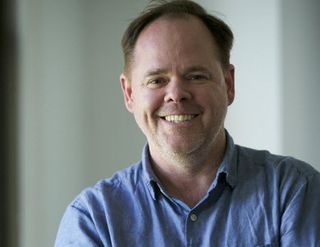Finding Viewers ‘Behind Bars’

Prison-themed scripted series on television have arrested viewers for decades, most recently with the success of Netflix’s Orange Is the New Black and HBO’s The Night Of. Unscripted and documentary shows that take viewers behind bars — from the 1970s documentary Scared Straight and A&E’s Beyond Scared Straight to more recent shows, like MSNBC’s Lockup — have provided an even more realistic view of the penal system.
A&E has found ratings success in a pair of prison-themed documentary series. Sophomore series 60 Days In, in which individuals volunteer to go undercover in jail to fully experience the life of an inmate, is currently the channel’s most-watched show. It also finished 2015 as cable’s most watched new unscripted series, averaging nearly 3 million viewers (per Nielsen live-plus-3-day ratings). A second prison-themed series, Behind Bars: Rookie Year — which follows rookie corrections officers during their first year on the job in one of the most dangerous prison systems in the U.S. — launched its second season last week.
Greg Henry, co-founder and co-president of production company Lucky 8 TV and executive producer of 60 Days In and Behind Bars, spoke with Multichannel News programming editor R. Thomas Umstead about the success of the A&E shows, as well as the nuances between fictional and nonfiction portrayals of penitentiary life. An edited excerpt follows.
MCN:Why have you and A&E been so successful in redefining TV’s prison-themed genre?
Greg Henry: Obviously, shows about prison have been made over and over again over the past couple of decades, but there is this moment where there’s a demand to look at that world in a new way. For us, it’s about finding new ways to enter this world. Most of the prison shows will tell you the stories about the inmates — and they are very important stories to tell — but until we start putting ourselves into those situations and seeing this world through the eyes of everyone involved in the system like we do with Behind Bars, I don’t think it gains as much attention.
I think that’s why our shows have resonated with people. With 60 Days In, we’re literally taking viewers and putting them behind bars, so I think there you’re getting a never before seen view of the world that was really reserved for scripted television. By providing that differentiated lens, the shows are grabbing viewers that have been out there watching prison programming throughout the years, but it also grabs the folks who watch [A&E forensic docuseries] The First 48 and Beyond Scared Straight, because they are now having a very visceral and personal response to the world.
MCN:What do you think of scripted shows likeOrange Is the New Black? Do they provide a realistic view of prison life?
Multichannel Newsletter
The smarter way to stay on top of the multichannel video marketplace. Sign up below.
GH: The scripted shows will always become a reference point where everyone will say, “She’s just like that girl from Orange Is the New Black.” What’s actually funny is that those characters and shows will also become the reference point for people behind bars. I think the shows that are well-done — and I think that Orange Is the New Black is very well done — where maybe they fall short is because they are scripted, it becomes hard to have a conversation about incarceration.
MCN:Having said that, as a producer do you address some of the inequities in the U.S. penal system that have been the subject of debate in recent years?
GH: I hope so. These shows are meant first and foremost to attract the viewer and entertain and fully engage the viewer. From that aspect, you can’t avoid talking about incarceration. In the case of Behind Bars, you see a system that is underfunded and overworked.
There are states where a starting salary for a correction officer, if you are head of household, the household qualifies for food stamps even though you’re working full-time. In the case of 60 Days, for me the fundamental question is who should be incarcerated? Once you put someone behind bars for even a week, it’s going to change them.
Our participants came out of the other side having trouble sleeping and organizing their day. There are millions of people arrested each year, but at the end of the day the question is who should be held for days, weeks and months? Right now, the judicial system is so backed up that if you’re going to go to a trial in any of the major cities you might be there for two months. So within these personal stories, if you want to and you’re open to it, there is a much larger conversation that can be had at the end of the day.
R. Thomas Umstead serves as senior content producer, programming for Multichannel News, Broadcasting + Cable and Next TV. During his more than 30-year career as a print and online journalist, Umstead has written articles on a variety of subjects ranging from TV technology, marketing and sports production to content distribution and development. He has provided expert commentary on television issues and trends for such TV, print, radio and streaming outlets as Fox News, CNBC, the Today show, USA Today, The New York Times and National Public Radio. Umstead has also filmed, produced and edited more than 100 original video interviews, profiles and news reports featuring key cable television executives as well as entertainers and celebrity personalities.

